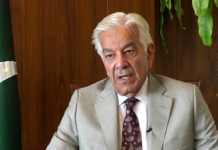RAWALPINDI: Chief of Army Staff (COAS) General Syed Asim Munir and the Iranian Foreign Minister Amir Abdollahian stressed collaborative efforts, better coordination and intelligence sharing to fight the common threat of terrorism. The Iranian top diplomat called on the army chief at the General Headquarters (GHQ) in Rawalpindi, a statement issued by the Inter-Services Public Relations (ISPR) on Monday said. Realising the historical, religious and cultural ties that bind Pakistan and Iran, both sides emphasised strengthening bilateral ties and fostering greater understanding of each other’s concerns. Recent tensions between the two countries rose after the missile strikes, with Pakistan recalling its ambassador to Tehran and not allowing his counterpart to return to Islamabad, as well as cancelling all high-level diplomatic and trade engagements. But efforts were swiftly made to lower the temperature, with the envoys asked to return to their posts and Abdollahian invited for talksGeneral Asim underscored the centrality of respecting the other state’s sovereignty and territorial integrity, calling it sacrosanct, inviolable and the most important cardinal of state-to-state relationship. The two sides observed that terrorism was a common threat that needed to be tackled through collaborative efforts, better coordination and intelligence sharing, the statement read.COAS Munir also emphasised the need for sustained engagement and utilising available communication channels to address security concerns. Both sides have agreed to operationalise the mechanism of deployment of military liaison officers in each other’s country at an early date to improve coordination and efficiency of response against common threats. “Both sides reaffirmed the resolve to remain closely engaged and not allow any spoilers to drive a wedge between the brotherly nations. Pakistan and Iran are fraternal neighbours and the destiny of both nations are intertwined,” said the military’s media wing. Islamabad and Tehran also reiterated their commitment to peace, stability and prosperity in the border region which was identified as an indispensable requirement for the well-being of people living on both sides, it concluded. The two Muslim nations have had a history of rocky relations, but the missile strikes were the most serious incidents in years.























